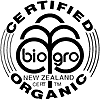PRESS RELEASE: EU POLICIES SHOULD SUPPORT ORGANIC PRODUCTION AND CONSUMPTION
July 2015
Riga, 11 June 2015 – At this politically important moment for the organic regulation reform – between an informal AGRIFISH Council during which there was still much disagreement over key issues last week and the upcoming formal meeting of 16 June at which an agreement on the organic regulation review is expected in the Council – more than 150 people from 23 countries joined the Latvian Minister of Agriculture, Green MEP Martin Häusling, other policy makers and leading organic experts to discuss the future of the organic sector. The occasion is the 9th European Organic Congress organised by the Latvian Presidency, the Latvian Ministry of Agriculture, IFOAM EU and ALOA.
The Latvian Minister of Agriculture, Mr. J?nis D?klavs said: “I believe that organic products will be in the menu of each family after 2030. Every farmer, producer, scientist and politician, who is involved in the organic production works hard already today in order to facilitate development of organic agriculture and to promote careful attitude towards environment at the same time.”??
“The organic regulation proposal is a very important dossier for the European Parliament and this conference comes at a crucial moment, before a likely vote in the Council and while my colleagues in the agriculture committee are drafting their amendments. Here at the international Conference of the movement of organic producers in Riga we will have a forum for policy makers and leading organic stakeholders to publicly discuss and work towards better solutions”, said Martin Häusling, Green MEP and rapporteur on the dossier. “My proposal aims to bridge the gaps in the current legislation and introduce some innovative elements. For me the crucial points are that we don’t harm organic producers with a threshold for pesticides they don't use. And furthermore there is a need to continue with annual controls as they are a strong basis for consumer confidence in organic food.”
“The EU institutions have the opportunity and responsibility to make decisions that will encourage production and consumption of organic food. This can be done in many ways, including rural development programmes and regulation. In particular, the ongoing regulation reform process is at a crucial juncture and member states should work to an ambitious text that answers the sector’s needs and promotes development. The Latvian Presidency has achieved much. On a few crucial issues, member states had very differing opinions and there is the possibility that the Council position will lack harmonisation”, said Christopher Stopes IFOAM EU President.
“Harmonisation is a key issue in Latvia”, continued Chairman of the Latvian Organic Agriculture Association Gustavs Nork?rklis. “With regard to rural development for example, the payments in neighbouring countries with similar conditions can differ greatly. The Commission approves these plans and although there are great discrepancies across Europe, the playing field for countries with very similar conditions should be harmonised as the impact on organic farmers and operators is very high. We have an opportunity to improve this in the midterm review of the CAP and should be taken up. In general, policy makers should listen to practitioners and take the differing practices across Europe into account when making policies.”
For more information please contact:
Laura Ullmann, Communications Manager
+32 (0)2 808 7991, laura.ullmann@ifoam-eu.org
Or visit www.ifoam-eu.org
IFOAM EU represents more than 160 member organizations in the EU-28, the EU accession countries and EFTA. Member organizations span the entire organic food chain and beyond: from farmers and processors organisations, retailers, certifiers, consultants, traders and researchers to environmental and consumer advocacy bodies.
















